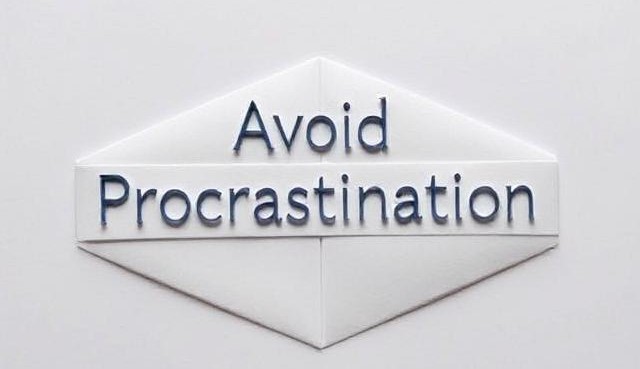
Procrastination is a common challenge that affects individuals across all walks of life. Whether it’s putting off important tasks at work, delaying studies, or avoiding household chores, the habit can lead to increased stress, decreased productivity, and a sense of regret. If you find yourself frequently procrastinating, don’t worry: there are effective strategies you can implement in order to overcome this tendency and improve your productivity. Here’s how to avoid procrastination and take charge of your time and tasks.
1. Understand the Root Causes
Before you can effectively combat procrastination, it’s essential to understand why you procrastinate. Common reasons include:
- Fear of Failure: Worrying about not completing a task successfully can lead to avoidance.
- Perfectionism: The desire to deliver flawless work can stall progress, making tasks seem insurmountable.
- Overwhelm: Feeling swamped by the size or complexity of a task can cause paralysis.
- Lack of Interest: Tasks that feel tedious or boring are often pushed aside in favor of more engaging activities.
By identifying the underlying causes of your procrastination, you can target your strategies more effectively.
2. Set Clear Goals
Setting clear, achievable goals is crucial for reducing procrastination. Use the SMART criteria (Specific, Measurable, Achievable, Relevant, Time-Bound) in order to help structure your goals. Therefore, break larger tasks into smaller, manageable steps to make them less intimidating. For instance, instead of setting a vague goal to “study for exams,” specify “study Chapter 3 for 30 minutes tonight.”
3. Establish a Routine
Creating and sticking to a daily routine can minimize distractions and foster a sense of responsibility. Therefore, designate specific times for work, study, and leisure. This structure limits opportunities for distractions and also makes it easier to delegate time to essential tasks. Because, consistency reinforces positive habits and reduces the chances of falling into patterns of procrastination.
4. Use the Pomodoro Technique
The Pomodoro Technique is a time management method that breaks work into intervals, traditionally 25 minutes long, followed by a 5-minute break. This approach makes tasks feel less daunting and more achievable, and the regular breaks help maintain focus and prevent burnout. After completing four Pomodoros, take a longer break (15-30 minutes) in order to recharge.
5. Minimize Distractions
Identifying and eliminating distractions is vital for maintaining focus. This might include:
- Decluttering Your Space: A clean, organized workspace can reduce visual distractions and improve concentration.
- Limiting Digital Distractions: Turn off notifications on your devices or use apps that block access to distracting websites during work periods.
- Setting Boundaries: Communicate your work times to those around you to minimize interruptions.
6. Practice Self-Compassion
Procrastination can lead to feelings of guilt and shame, which paradoxically often exacerbate the problem. Therefore, practice self-compassion by acknowledging that everyone procrastinates at times. Rather than berating yourself, focus on moving forward and implementing strategies to improve your habits.
7. Reward Yourself
Incentivizing productivity can be a great motivator. Establish a reward system for completing tasks or achieving specific goals. Rewards can range from a short break, a treat, or enjoying an episode of your favorite show. Because, celebrating small victories helps reinforce positive behavior and makes work more enjoyable.
8. Seek Accountability
Sometimes, sharing your goals with someone else can help keep you accountable. Consider working alongside a friend, colleague, or even a mentor who can help you stay on track. Therefore, regular check-ins can provide encouragement and support, making it harder to procrastinate.
9. Reflect on Your Progress
Take time to reflect on your accomplishments and the tasks you’ve completed. Because, regular self-reflection can help you recognize patterns in your behavior, understand what triggers your procrastination, and celebrate your successes. Hence, this practice reinforces a positive outlook and motivates you to continue improving.
Therefore, overcoming procrastination is a journey that requires persistence and the willingness to adopt new strategies. By understanding the reasons behind your procrastination, setting clear goals, establishing a routine, and implementing focused techniques, you can significantly enhance your productivity. Remember that change takes time, and be patient with yourself as you work towards becoming more proactive in your approach to tasks and responsibilities. Embrace the process, and soon you’ll find that you are better equipped to tackle challenges head-on.





